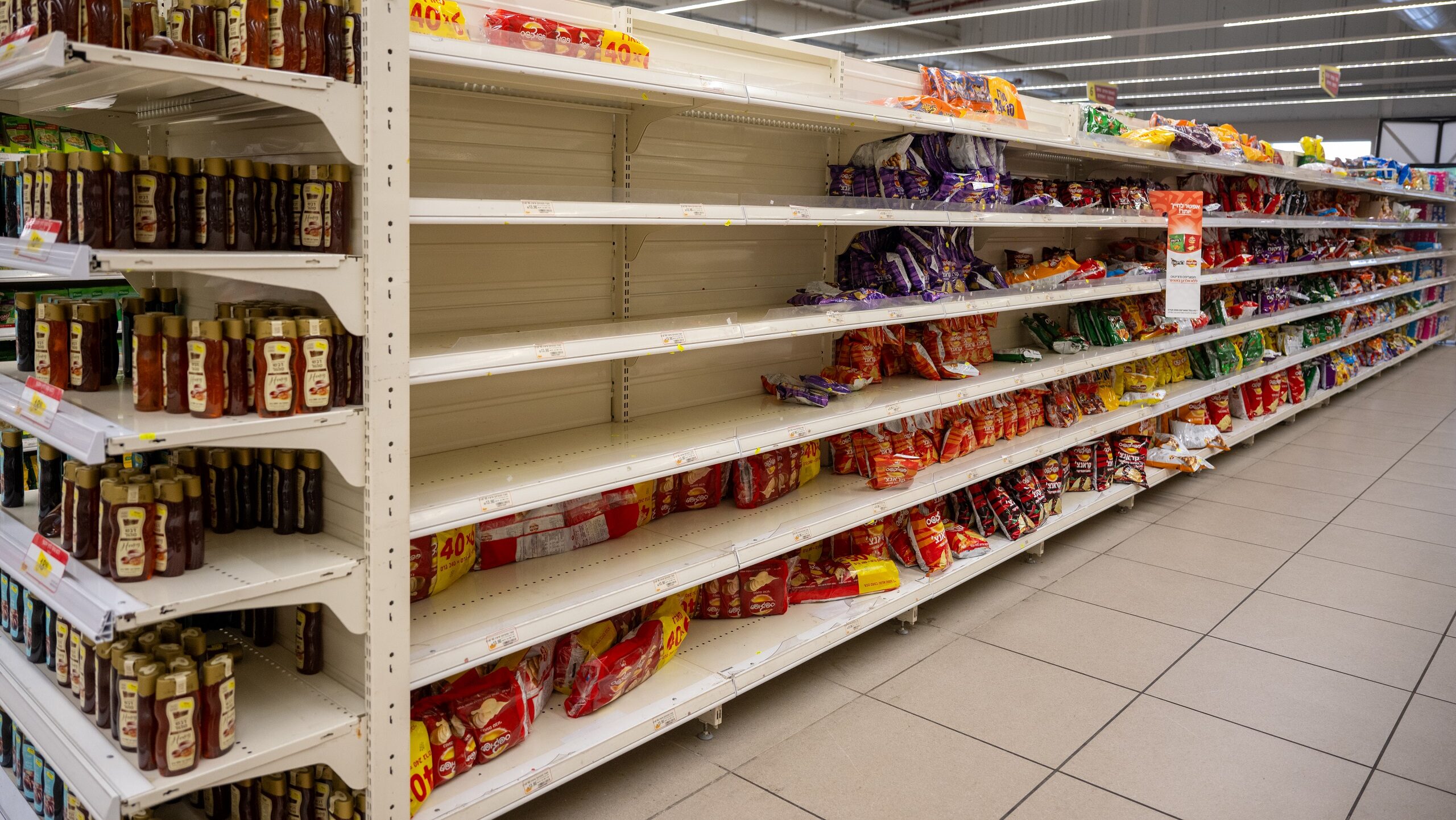Israeli Homefront Prepares for Extended Counteroffensive
The nation’s emergency management authority advises citizens to ready their bomb shelters for an extended period without power, food, or water
It’s now been a few days since the Hamas terrorists’ October 7 massacre of civilians in southern Israel. On the streets of Jerusalem, as within every other city across the country, tensions are running high.
People are also stocking supplies, including foodstuffs and electronics. The Israeli Home Front Command is repeating advice to prepare bomb shelters for up to three days without power, food, or water ahead of what’s expected to be a protracted Israeli counteroffensive.
In the local supermarkets, fruit and vegetables are largely untouched, while anything ready to eat with a shelf life is running low. Bread, water, eggs, baby formula, diapers, feminine hygiene products, and canned goods are all in short supply. It’s unclear how much of these supplies have been purchased for private stocks, as opposed to donations for soldiers and victims of the southern attack.
Similarly, at the Rami Ron electronics store in Jerusalem, co-owner Yossef Yosof tells The Media Line that dozens of flashlights and radios have flown off the shelf. He says the sales sadden him, given the reasons for their purchase.
Meanwhile, the “troubled mood” on the streets, as Yosof calls it, can be felt palpably across the country.
In a normally bustling McDonald’s franchise in Jerusalem, only a few people trickle in. Israelis looking for a semblance of normalcy amidst the tragedy and tourists whose flights home have been canceled seemed to be the only patrons.
Among them are Robert McVicar from Kansas, who arrived on October 2 for a pilgrimage tour, and Israeli citizen Anat Yedid-Levy, who lost her son to a terror attack in 2001, accompanied by her grandson Liam. Everyone spoke of the shock they felt as they were glued to the unfolding news.
“Those people [Hamas terrorists] are terrible,” McVicar told The Media Line. “Killing innocent young people … Americans feel for you because we know terrorists are ruthless. They don’t care who they kill, old, young, they take people. It’s terrible. It’s hard to watch.”
It’s really a holocaust, what [Hamas] did. Even in war, you don’t do those things. They crossed every red line. And we still don’t know everything.
Yedid-Levy, who had just visited the site of her son’s murder, came to take her grandson for ice cream, “for just a little sweetness” in these trying times, she says.
“It’s really a holocaust, what [Hamas] did,” Yedid-Levy said. “Even in war, you don’t do those things. They crossed every red line. And we still don’t know everything. They trickle out details. But the numbers of the murdered and injured, the executions, the vandalism, the looting—I can’t even say all the words here. Three days I haven’t slept at night. It’s just sad.”
We cared for the Gazan people. … What they did to us—I don’t think they’ll ever be forgiven. Not in this world nor the next.
“We cared for the Gazan people,” Yosof said. “We cared for their water, we cared for their employment, we cared for their electricity. Everything. We don’t even really have a connection to them, yet we worry. But we’ve just received such a hard slap to the face. What they did to us—I don’t think they’ll ever be forgiven. Not in this world nor the next.”
In addition to indiscriminately firing thousands of rockets in an unprovoked act of war toward Israeli population centers, the scenes of Hamas’ gleeful brutality and gruesome butchery, rape, and kidnapping have been indelibly stained on the Israeli psyche. Israel’s primarily civilian death toll is now over 1,300 and counting, with thousands more injured and over 150 kidnapped—mostly unarmed innocent women, men, children, and elderly.
Recently published interrogations with captured Hamas terrorists revealed that they took the women—and children—with the express intent “to dirty them. To rape them.”
But amidst the anger and the tears, Israelis by and large still wish for a peaceful outcome to this tragedy. Yosof likens this war to the Yom Kippur War, nearly 50 years ago to the day, which eventually led to Israel’s landmark peace agreement with Egypt.
“I hope that this war—despite our enduring many great catastrophes—will also lead to a situation where we can have peace,” he said. “I don’t know why they don’t want to live. They could live like we do, where we live and enjoy life and things are good. They could have that, too. We just need to learn to live in peace with our enemies.”
That said, thoughts for the future remain mostly far away behind the escalating conflict and mourning.


